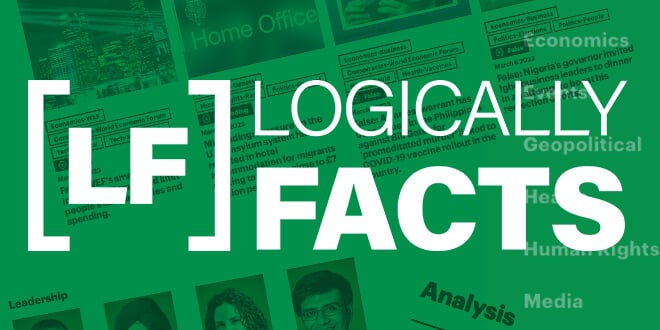By: Logically Facts
June 28, 2023
New research reveals social media users demand more fact-checking from platforms; concerns grow on the real-world impacts of misinformation

- New survey from Logically Facts, the fact-checking unit of Logically, reveals 61% of consumers think more fact-checking should be done by social media platforms
- Over 1 in 4 consumers want to see more fact-checking conducted around elections and other political events
- Just 35% of online users say they trust tools like ChatGPT to provide them with accurate and unbiased information
New research from Logically Facts, the fact-checking unit of counter mis- and disinformation pioneers Logically, has today revealed that the general public is becoming increasingly concerned about the spread of false and misleading information across the internet, and the real-world impact it is having globally.
More fact-checking demanded on platforms
In a survey of over 6,000 social media users in the UK, USA, and India, almost two-thirds (61%) of users believe that social media platforms and media organisations should be doing more fact-checking than they currently are today. This sentiment is highest amongst online users in the US (68%), but also has majority support in India (60%) and in the UK (55%). This demand comes as almost three quarters (72%) of online users now believe society and politics are being undermined by mis- and disinformation circulating in the media and across social channels.
In particular, concern is growing around the real-world impact of false information, including its impact on health choices, human rights (46%), and encouraging social unrest and protests (41%). As a result, not only do online users want to see more fact-checking from social media platforms, but they want fact-checking efforts to be focused on specific areas, including elections and other political events (28%), healthcare (19%) and climate change (14%). Failure to do so risks increased levels of disengagement, with 32% of users saying increased misinformation deters them from using social media, while 28% say it means they avoid engaging in political discourse.
Commenting on these findings, Baybars Örsek, VP and General Manager of Logically Facts, said: “As the risk of online harms continues to grow in size and scale, the need for trustworthy, scalable, and timely fact-checking is more important than ever. As our survey demonstrates, the general public clearly recognises this as well, and wants to see the channels they consume their information go further in reducing the damage caused by harmful discourse. The fact-checking community plays an important role in supporting platforms, so it’s vital we continue to look at ways to work together to proactively limit the harms caused by mis- and disinformation at scale.”
Solutions becoming clearer, but new threats emerge
The survey also sought to get a temperature check on the ways in which platforms and the fact-checking community can best serve online users and combat the problem of mis- and disinformation. In particular, users feel that using a combination of advanced technologies alongside human intervention to conduct fact checks (47%) is the most scaleable and trustworthy way to approach the issue, rather than simply using technology itself (24%) or relying on individual human intervention (14%).
Media literacy and improving the ability of users to find reliable information, spot inaccurate information and even pre-bunk misleading information before it spreads also serve as useful tools when combatting mis- and disinformation. While the large majority (84%) of consumers are confident in their ability to distinguish fact from fiction on the internet, there are notable gaps. For example, 1 in 10 (10%) consumers surveyed believe social media companies and media organisations should be not fact-checking anything, but concerningly this viewpoint increases to almost a fifth (19%) for those who do not trust in their own ability to sort fact from fiction.
Continuing to develop and improve solutions and countermeasures is becoming increasingly important as the threat landscape also continues to evolve. This is particularly the case when it comes to the spread of AI-generated content online, where areas such as media literacy and ensuring users have the tools to spot fact from fiction are vital. Online users are clearly worried about this as well, with just 35% stating they trust tools like ChatGPT to provide them with accurate and unbiased information. This scepticism is highest amongst users in the UK, with only 15% saying they trust the tool, which compares to 27% in the US and 64% in India.
Örsek concluded: “As the threat landscape continues to evolve, including the growth in AI-generated content, there is a growing need to strengthen the ability of social media users to find reliable information, spot inaccurate information, and even pre-bunk misleading information before it spreads. Media literacy programs and bringing the fact-checking community closer are an essential piece to this puzzle and is an area Logically Facts and our partners are prioritising this year.”


